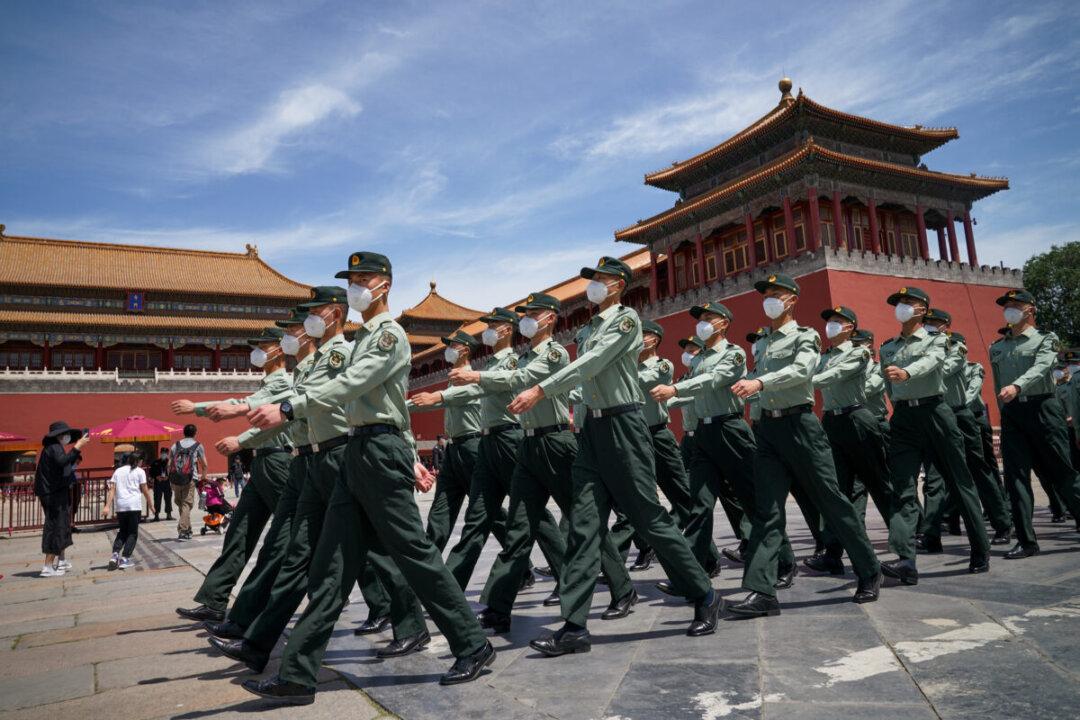
Soldiers of the People's Liberation Army march in front of the entrance of the Forbidden City in Beijing on May 20, 2020. Andrea Verdelli/Getty Images
The majority of Australians now see China as “more of a security threat” to the country, according to new figures from the Lowy Institute.
The survey revealed that 63 percent of Aussies now have a more negative view of China, which is a “substantial” 22-point increase from last year.





